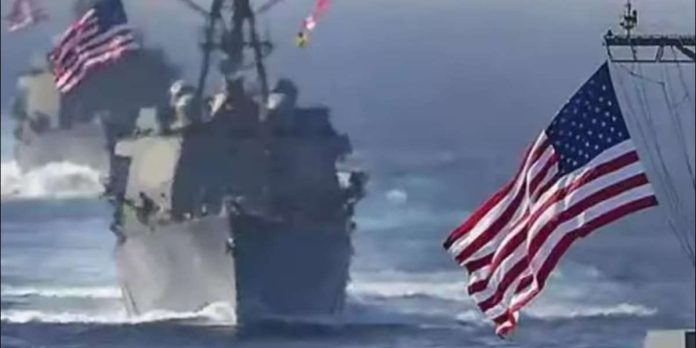U.S. fleet strengthens presence in the Caribbean as confusion and paranoia grow within Chavismo
Soldecanarias.net
The Miraflores Palace is experiencing days of maximum tension. The pressure exerted by the White House under Donald Trump has set off alarms in Caracas, where Nicolás Maduro’s inner circle acknowledges an unprecedented climate of uncertainty. The deployment of assault ships, nuclear submarines, and intimidating messages has fueled the sense that armed conflict is no longer a distant scenario.
In just 24 hours, Trump announced the sinking of a vessel departing from Venezuelan coasts, and a former U.S. official publicly suggested that the presidential pilot may have negotiated with Washington. These actions, combined with increasing digital propaganda about alleged military defections and internal conspiracies, have heightened paranoia within Chavismo.
Maduro has attempted to maintain a communication channel with Trump through Richard Grenell, with whom he negotiated oil licenses and prisoner releases earlier this year, but the White House appears to have hardened its stance. The Venezuelan president even sent a letter calling for “frank and direct” dialogue, bypassing Secretary of State Marco Rubio, whose aggressive tone toward the regime is constant.
Meanwhile, the Chavismo government is fortifying itself. Military training in popular neighborhoods has increased, and images of maneuvers and speeches by its leaders are being circulated. However, political wear is evident: the movement has lost support at the polls and faces disaffection from social sectors that were once its most loyal base.
Amid propaganda and maneuvers, uncertainty dominates Miraflores. The fear of an invasion is no longer a rhetorical phantom but a shadow that unsettles the Chavista leadership.



